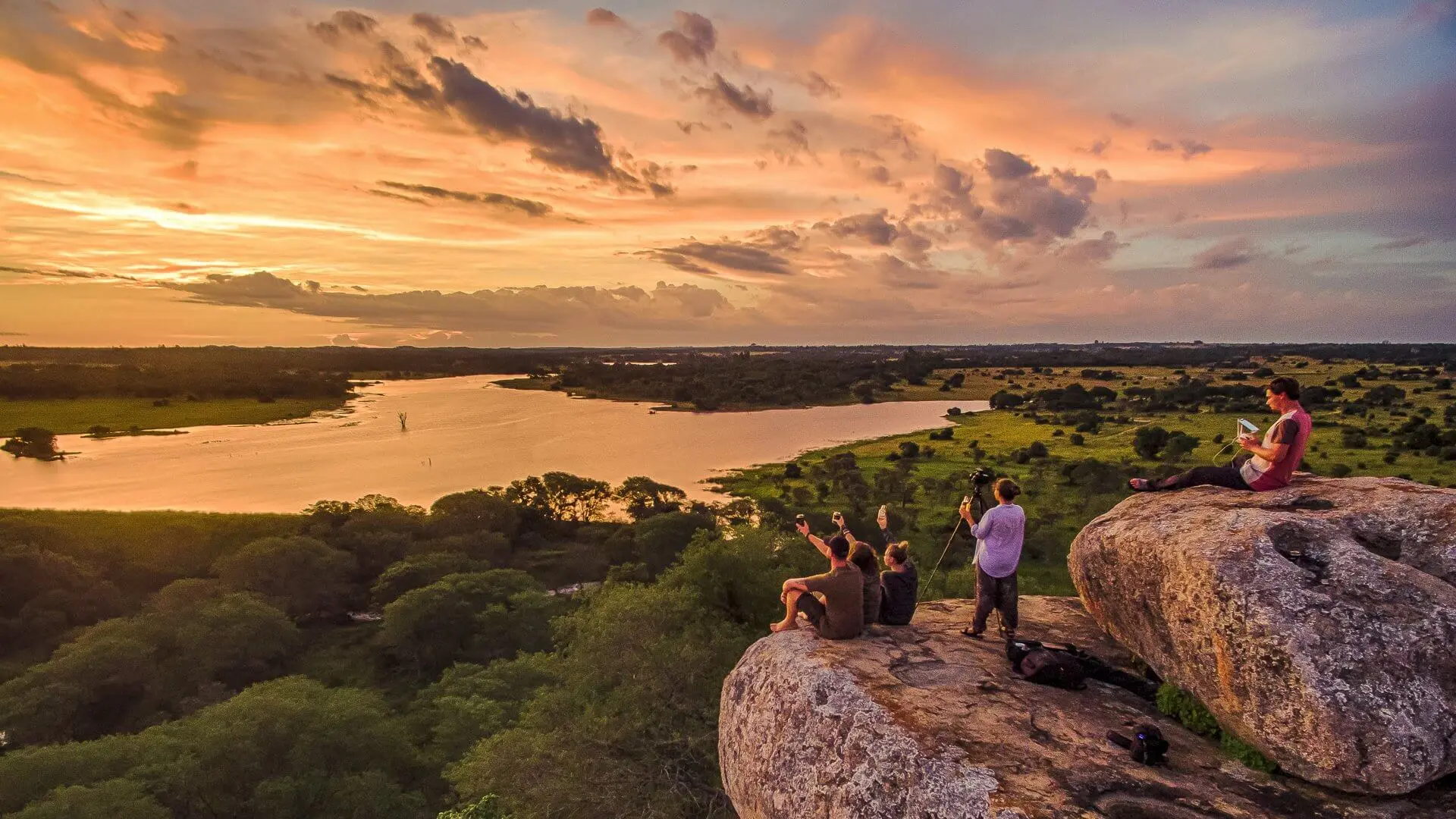I’m really passionate about the environment. So, when I found African Impact’s Environmental Sustainability Internship, I knew it would fit perfectly with my career ambitions to work in recycling and conservation work. It didn’t disappoint.
An Environmental Sustainability Internship That changed my life
Arriving in Livingstone, home to African Impact’s community projects in Zambia, it took me a couple of weeks to find my way around town, to learn what the currency looks like, to appreciate the local cuisine and to get to know the local people. After I settled, I couldn’t have felt more at home. I’m not one for luxurious vacations – I enjoy being immersed in local culture and tradition – which is exactly what I found in Livingstone.
The town itself is a popular hotspot for tourists due to its proximity to one of the Seven Natural Wonders of the World, Victoria Falls. It’s also an easy transition into African travel as it is a bit more developed than its surrounding villages. And beautiful too. There is cell phone signal (most of the time!), well-developed infrastructure, electricity, and clean running water – some necessities that many African communities lack. Added to the fact that my own culture and way of life back home is incredibly traditional (similar to that of Livingstone), it made it easy for me to adjust and feel ready for the next 3-months of my internship.
A void for innovation
If you have visited Africa before, you’ll understand that waste management is next to non-existent, especially in small towns and villages. It’s not a priority for national governments and the responsibility often falls to local councils and communities. But Africa is beautiful. It’s a pity to see it littered. Although pollution often stems from large conglomerates and more-developed nations (simply because manufacturing is the core industry), the effects are often felt by small communities who have to create solutions independently.
The shocking reality is there is no recycling being done in Livingstone, trash pickups are scarce, and rivers are deeply polluted. All of these issues are not unique to Livingstone, they are not unique for Zambia, and this is not even the worst case-study in Africa. There is a real need for innovative solutions, a way to inspire people for a cleaner, healthier future. Education is a must and proper governance is essential. We need to make a new discovery, spinning straw into gold, turning trash into a useful resource. Hence the focus for my internship – how can the small guy win and how can we find solutions to this problem that are practical for the community?
Most of my Environmental Sustainability Internship was spent developing new projects and innovations in response to community needs. To begin with, I interviewed community members, independent recycling companies, local council, and volunteers about possible solutions. My questions were well-received and the support I received from each stakeholder was amazing. They really wanted a solution and I was there to help create one. As I became more confident in my role, I took on more practical responsibilities. This included creating a workshop to train local teachers on the issues of waste, as well as bolstering a curriculum that educates the children on litter and recycling. I used recycled bottle caps to create a mural to showcase how waste can be turned into something beautiful, while at the same time showed kids in the community how to make ecobricks. These ecobricks were then used to make two benches at a local school, which will provide children space to learn and relax in the shade.
To leave a legacy behind for the next intern, I produced a report that summarised my interviews with the community members and identified the main issues as to why there is such a large amount of litter in Livingstone. Most exciting, I worked alongside local partners to arrange a clean-up in the nearby national park, which will take place later this month.
A squid in a fish tank
African Impact is an amazing organization that allows you to make your own impact during your internship. Having guidance, but also free-reign, meant I could be innovative and make my mark on the community. My partner and I were the go-to interns for the Ecobricking and Plastic Recycling volunteers, who help implement the programs that I helped to develop. That was one of the things I appreciated about my internship – I had to think on my feet, find creative ways to research while challenging my social skills, business mindset, initiative and management skills. Every intern that arrives in Livingstone adds value to this project as it is always growing and developing. Being an Environmental Sustainability intern is difficult, but rewarding. I learned valuable, practical skills and challenged my overall strength and endurance (physically, mentally and emotionally). I appreciated the freewill I was given to visit other African Impact projects – such as the teaching or sports program. This allowed me to connect with the local children and learn how to farm! Yes, I said it – I learned how to farm! It’s one of my fondest memories – farming in a field, surrounded by livestock and a river running next to the farm. A river that I hope will one day be clear of litter and trash.






